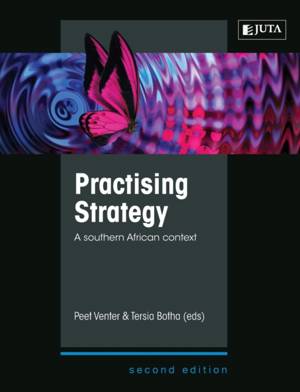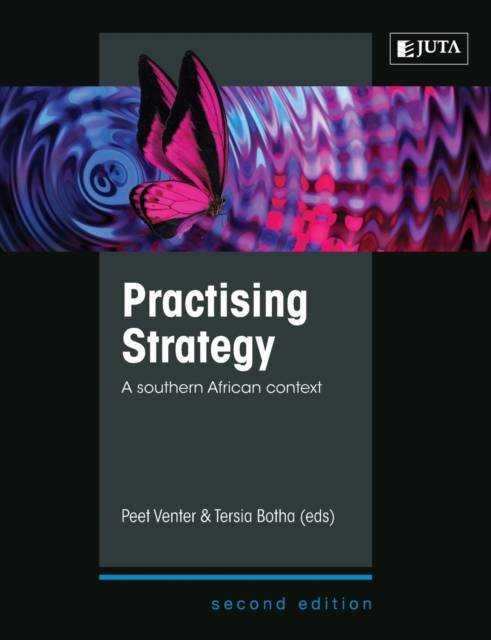
- Retrait gratuit dans votre magasin Club
- 7.000.000 titres dans notre catalogue
- Payer en toute sécurité
- Toujours un magasin près de chez vous
- Retrait gratuit dans votre magasin Club
- 7.000.0000 titres dans notre catalogue
- Payer en toute sécurité
- Toujours un magasin près de chez vous
Description
A question that I was asked often when writing and compiling this book (and that, in all honesty, I had asked myself more than once) was: why another strategy book? There were, after all, quite a number of books, international and local, already available on the South African market. It became clear that we had to position this book definitively to make a unique contribution to the extant body of knowledge.
So how, then, is this book different? We believe that there are five key aspects:
■■ A cursory review of strategic management books shows that the focus is very strongly on the process of strategy formulation, i.e. the thinking and analytical aspects of strategic management, as opposed to the 'doing' part of strategy, which is often dealt with in one or two chapters towards the end. Given that it is the greatest challenge to managers in the 21st century and the greatest reason for strategy failure, we decided to focus on strategy implementation instead.
■■ Most strategic management books portray strategic management as a neat, analytical and rational process that flows from top to bottom in the organisation. Rather than promoting the unrealistic idea of strategy as a purely rational and deliberate outcome, we acknowledge and explore the idea that strategy is often emergent, messy and experimental, and above all a human activity.
■■ Top management has long been regarded as the custodians of strategy. The idea that there are other strategists (human and non-human actors) such as middle managers and consultants that influence the strategic direction of the organisation and distribution of resources emerged only relatively recently, and we include this factor.
■■ We focus on strategy as something that people 'do' rather than something that an organisation 'possesses'. Since people are the building blocks of strategy, we recognise that strategy is both a cognitive and political activity.
■■ Most South African textbooks rely on secondary sources. While we use recent secondary sources from the extant body of knowledge, we conducted primary research among southern African top and middle managers and drew on these managerial perspectives to enrich our material with firsthand accounts of the strategy experience.
We trust that you will find value in the contemporary and different perspectives we present in this book.
Spécifications
Parties prenantes
- Auteur(s) :
- Editeur:
Contenu
- Nombre de pages :
- 416
- Langue:
- Anglais
Caractéristiques
- EAN:
- 9781485125150
- Date de parution :
- 25-01-19
- Format:
- Livre broché
- Format numérique:
- Trade paperback (VS)
- Dimensions :
- 189 mm x 246 mm
- Poids :
- 739 g

Les avis
Nous publions uniquement les avis qui respectent les conditions requises. Consultez nos conditions pour les avis.






